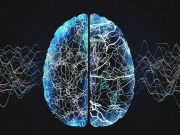Study Looks at Recovery Potential in Comatose Patients Who Died After Halting Life-Sustaining Therapy
Most patients who died after withdrawal of life-sustaining therapy were considered to have recovery potential of at least 1 percent
Use of Parallel Transmit 7T MRI Changes Management for Epilepsy Surgery
Lesions were better visualized on pTx than circularly polarized MRI in 57 percent of cases and were never better visualized on circularly polarized MRI
Long-Term Gantenerumab May Slow Decline in Dominantly Inherited Alzheimer Disease
Hazard ratio for clinical decline in Clinical Dementia Rating-Sum of Boxes was 0.53 for those treated with gantenerumab the longest
Six Months of Breastfeeding Tied to Lower Odds of Developmental Delays
Benefits seen in attainment of language and social or motor developmental milestones
Tenecteplase Is Reasonable Alternative to Alteplase for Ischemic Stroke
No significant difference seen in terms of effectiveness or safety outcomes, including functional independence at discharge
ACP Issues Clinical Guideline for Pharmacologic Treatment of Acute Episodic Migraine
ACP recommends adding triptan to NSAID or acetaminophen to treat moderate-to-severe acute episodic migraine
FDA Unveils Transparency Tool for Easy Check of Contaminant Levels in Foods
Tool is an online, searchable database that provides a consolidated list of contaminant levels
Disruptions in Amino Acid, Lipid Metabolism May Signal Tardive Dyskinesia
Five differential metabolites had AUC values greater than 0.7 for diagnosing tardive dyskinesia in schizophrenia
Burden of Alzheimer Disease Rose Worldwide From 1990 to 2021
Additionally, trends show increasing cross-country inequalities, with higher burden in higher sociodemographic index regions
Sonolysis Reduces Risk for Periprocedural Cerebrovascular Events During Carotid Endarterectomy
Significant reduction seen in primary end point of composite incidence of ischemic stroke, transient ischemic attack, death within 30 days



















